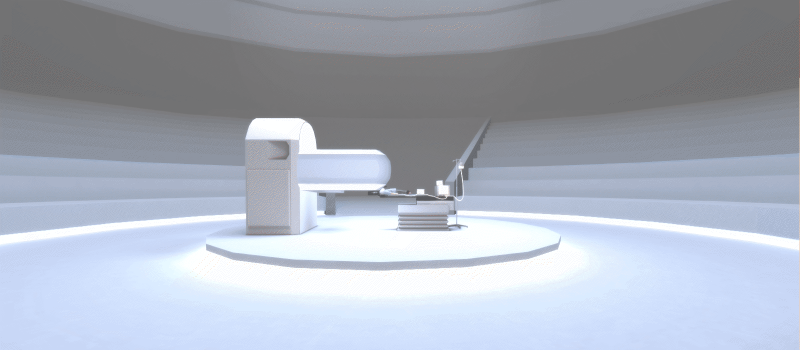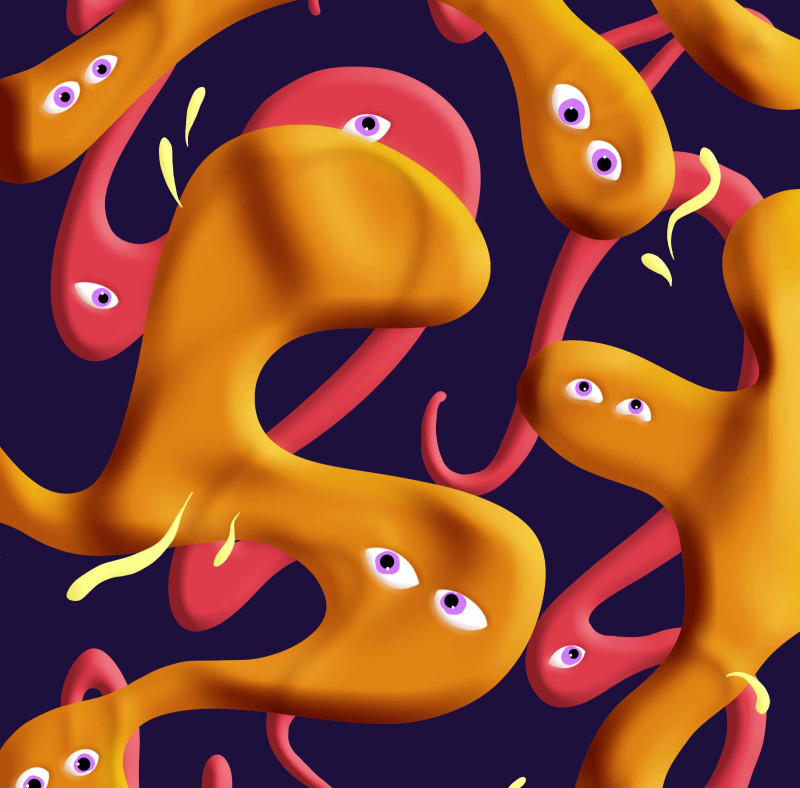That Dragon, Cancer
When their one-year old son Joel is diagnosed with an aggressive strain of cancer, the world of Amy and Ryan Green stops turning, and their faith is put to the test. They decide to channel their feelings through the medium they love and know best: a video game.
That Dragon, Cancer is a poetic retelling of a small child’s battle with cancer. Through a series of interactive vignettes, players live through the most painful and most gratifying moments. You’ll witness chemotherapy sessions and doctor appointments, but you’ll also spend time caring for Joel, go to the playground and try to make him laugh. Chronicled and narrated by the parents, the memoir becomes extra touching through the use of audio taken from family home videos.
It’s an immensely powerful and important video game, that may change the way you look at life, loss, and hope.
About the developer
Amy and Ryan Green are a couple of indie game developers living and working in Colorado. After That Dragon, Cancer won awards such as the Games For Impact award at The 2016 Game Awards, they continued creating video games with their studio Numinous Games. The studio’s currently working on VR project Area Man Lives.

Interview with Amy and Ryan Green
Where did you find the emotional strength and resilience to build something like this?
Ryan: I honestly don’t know, because I don’t have it anymore. Right now, I don’t think we can do what we did. As an artist in a powerless situation, all you can really do is create and talk about it. At the time, for me at least, it was something I could do in the midst of not doing anything. Now, it’s just painful.
Amy: Humans are remarkable at adapting in very hard and terrible circumstances, and while you’re in the middle of them you kind of have these extra emotional reserves. When we first demoed the game we were surprised at how strong people’s emotional response was. We toned some things down, because we didn’t understand how emotional they would be for other people, because they felt normal to us.
Were there ever any moments of doubt that you should do this?
Amy: People were surprised we were able to keep doing this after our son died, but for us it was the only way to do anything. After he died we had to figure out how to build a life without him in it. Getting up and going to a job wouldn’t have felt meaningful, but because our job was creating this game about him, it was a way for our family to continue to focus on him. That was really nice for us, because it felt like a way to go back to life - because you have to - without feeling like we were walking away from him.
Ryan: Part of the reason we started this project was hoping to show a miraculous event, rather than a tragic one. In our faith tradition there’s a lot of emphasis placed on hope and the miraculous, and less on what it means to endure and suffer. We asked ourselves: is it okay for us to talk about our suffering? because we were in a tradition where it was not okay to talk about your suffering because that might cast out on the whole system.
Amy: One of the final scenes of the game is The Cathedral. That scene has audio from the real prayers we prayed the night Joel died. There was definitely a moment after playing through that for the first time of stopping and saying: “should we really do this? It was so personal and intimate and the story of our greatest disappointment in life, and like Ryan said, faith communities sometimes don’t like to focus on disappointment. Moving forward anyway helped us connect with a whole different group of people.
Was there any backlash from your faith community as you put this out?
Ryan: I don’t think there was even much of an understanding of what we were doing. Video games were for kids. But this is not for kids - this is just us expressing ourselves through the medium we know and love!
Amy: The kinds of people that would be the most likely to be critical of it are not the kinds of people that engage with games enough to even know how to find and play it. Instead, we found that there were more Christians like us than we thought, and those were the ones we would hear from because they knew what Steam was and how to play games. It was helpful to realize that one part of the community is not the whole thing. There are people from all walks of life with different opinions, thoughts, and perspectives.
What was the reaction of the gaming community as a whole like?
Ryan: The whole industry embraced us and that was something I didn’t anticipate. When we brought the first demo to GDC, people were interested and introduced us to others. But also at enthusiast events like PAX, people would stop and play it. A lot of them were invested emotionally and we would hug and talk about their own personal stories. They would share with us, after we had shared with them and it was this emotional and intimate time in the middle of a floor full of cosplay and really big games.
Amy: I think we kind of braced ourselves for a backlash that never came. We were so surprised by the kindness and generosity of the community. Every now and then an article would be published and there would be a negative comment or two. But what was amazing was people would always come to our defense. Like someone would say: “Cancer isn’t a game, no-one should make this!” and people would react with “I don’t think you’ve played this. I don’t think you know how this works.” I think it’s because we led with intimacy and invited people into something very personal.
Wasn’t it emotionally draining to have people sharing their stories while dealing with your personal trauma?
Ryan: I didn’t see it that way. I was just grateful that people stopped to care at all. We’re in a social economy that’s all about attention. To get anyone to stop for longer than the time it takes to scroll past a picture is incredible. To have people sit and talk with us, and share stories was a rich experience. Amy and I didn’t really do support groups. In fact, we joined one support group after Joel passed away and we realized “oh, we have our own support group in the industry”.
Can you still return to the game?
Ryan: No… I once triggered myself just by listening to the soundtrack. There’s things a professional game studio should do: get an update out, publish to other platforms. But it dead-ends with me. I don’t even have enough emotional energy to go near the code base. It’s odd. Again: when I reflect on what we did, I’m not the same person anymore.
Amy: There’s a documentary about the game made by a different crew called Thank You For Playing. We’ve been able to watch that, and it’s always a good experience for us. It’s hard and it’s emotional, but it’s good. Going back to the game has felt too difficult, maybe because you have to personally engage.
Maybe it has something to do with the medium in itself?
Ryan: I think you see the evidence of that in how people have chosen how to consume That Dragon, Cancer. Almost everybody that’s experienced it did so through a YouTube video, and I think that’s intentional. It’s really emotionally risky to engage with what we’ve built and I think YouTube provides a level of safety. My mom watched a YouTube video, she never played the game. I think that level of abstraction is emotional safety.
On the other hand, VR could make everything even more personal.
Ryan: Yeah, had we built That Dragon, Cancer now, we would’ve probably used VR. The way the game’s built, I feel like TDC was some sort of proto-VR experience.
Amy: It’s certainly the reason we’ve been doing a lot of VR ever since. We really like that space, and even more, we like what we think that space is pointing to. With emerging technologies we will be able to make even more intimate experiences that will focus on the player’s presence and intentions.
What’s the one thing you would like people to take away from this experience?
Ryan: Just the delight of being near Joel, just making him laugh.
Amy: I think it may be hope, and that’s still a very difficult concept for me. But if I were to talk about what those years of my life felt like, they felt like hope. Now, looking back at that it’s hard because so much of that hope was disappointment. I think I’ve spent years since then trying to remind myself that hope is good, even if hope is not always safe. In the aftermath of losing Joel, I’m learning to make my peace with hope again, so I hope that people play the game and walk away with some feeling of hope.
Interview by Christophe De Bont
For more info, follow @DifferentPerspectives_Festival on Instagram
